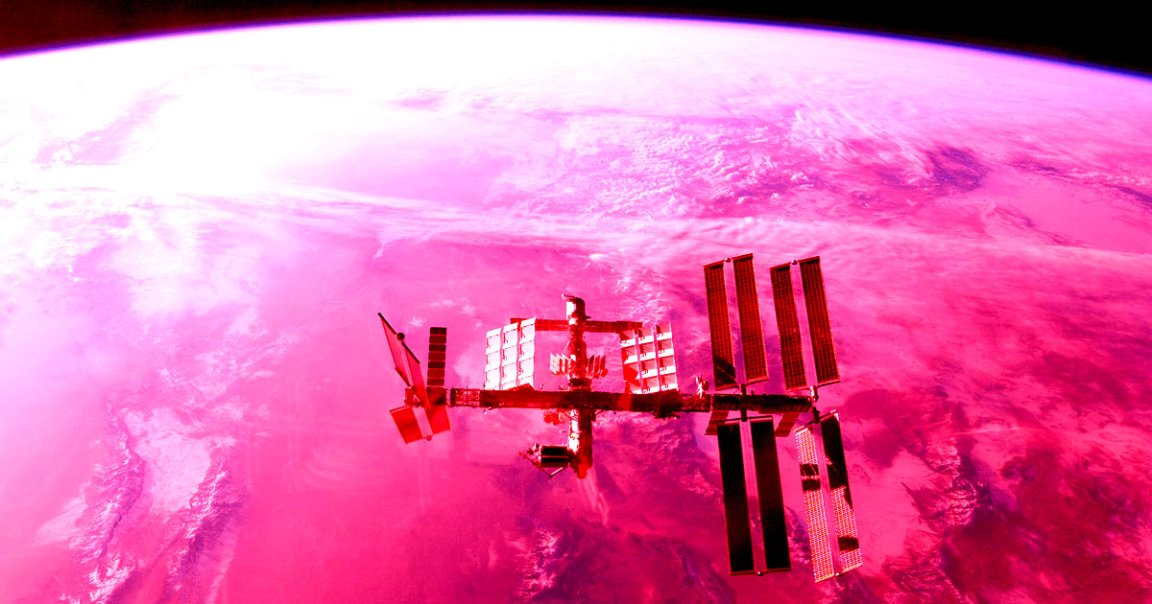
Course Correction
The International Space Station had to fire its thrusters to avoid incoming space junk yet again this week.
“On Thursday, the International Space Station’s Zvezda service module engines were fired for 21.5 seconds… to maneuver the complex away from the predicted track of an orbital debris fragment,” NASA officials wrote in a blog update.
As a result, the station’s orbit moved by roughly 1,640 feet, according to Russian state media. The maneuver did not interfere with a scheduled docking procedure of Russia’s Progress MS-24 transport cargo ship, which docked with the station early Friday morning.
Nonetheless, it’s yet another ominous indication that Earth’s orbit is becoming increasingly littered with junk, quickly turning it into an even more hazardous place to travel.
Junked Up
It’s far from the first time the station has had to fire its thrusters to avoid space junk. Since 1999, the station has had to correct its course a whopping 30 times, as Space.com points out. These maneuvers have only become more frequent as more satellites and other payloads are sent into orbit, many of which are doomed to keep circling the Earth long after they’re decommissioned.
To stop the ISS from being shredded by space debris traveling at 17,5000 mph, NASA is tracking an area of 30 by 30 miles, with the station in the center. Any tracked space debris that comes within this range can trigger a course correction.
With an increasingly littered orbit, space agencies are starting to turn to possible solutions. For instance, the European Space Agency recently launched its ClearSpace-1 mission, a spacecraft that’s designed to claw onto space debris to dispose of it.
Ironically, the spacecraft’s latest target got hit by a smaller object earlier this week.
“This fragmentation event underlines the relevance of the ClearSpace-1 mission,” ESA officials noted in a statement.
While the space station’s own days are technically already numbered, any future spacecraft venturing through our planet’s orbit will have a minefield of potentially hazardous debris to navigate.
And that doesn’t bode well, considering humanity’s growing appetite for off world exploration.
More on the ISS: Cosmonauts Caught Littering Directly Into Space During Spacewalk